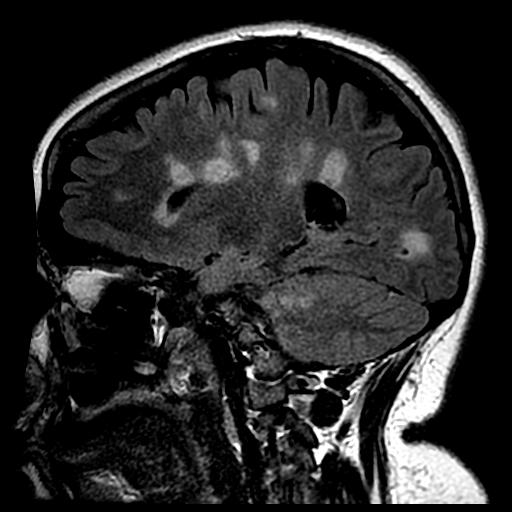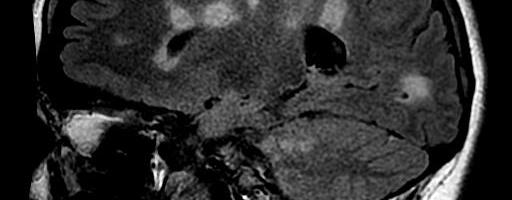
This is an MRI of a person with multiple sclerosis. White areas show permanent scarring caused by the disease. (Image by UBC)
Expanding narrow veins from the brain and spinal cord is not effective in treating multiple sclerosis (MS), according to new research coming out of British Columbia. The invasive surgical procedure, called “liberation therapy”, is performed by inserting a catheter into the vein and pushing out the vessel walls by inflating a small balloon. Thousands of MS patients have received such treatment since 2009. Liberation therapy was claimed to result in dramatic improvement after a one-time procedure. A team of researchers have put this claim to test by comparing it to a placebo treatment—the catheter insertion only, without venoplasty—in a group of MS patients. Three days after the procedure and then one year later, results of the treatment were collected through brain imaging, standard assessments of MS symptoms and the patients’ self-assessments. Patients who’ve undergone liberation therapy showed no significant difference from the placebo group.
Original paper presented at the Society of Interventional Radiology 2017 Annual Scientific Meeting on March 8, 2017.
Associated UBC news story.


